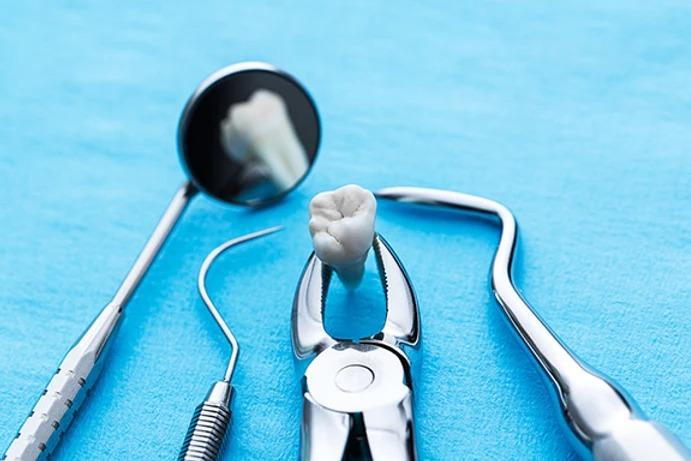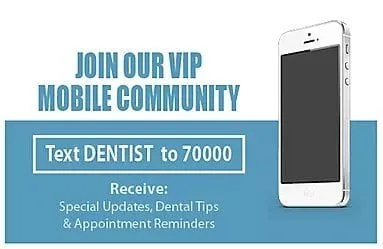
Tooth extraction involves removing a tooth from the mouth. Extraction is done by your dentist for many reasons, ranging from tooth decay to overcrowded teeth. While few relish the thought of having a tooth extraction performed, it is often necessary to preserve and protect a patient’s oral health.
What to expect during the extraction procedure
Your dentist will inject an anesthetic along your gum line that sufficiently numbs the tooth to be extracted. A series of specialized tools will then be used to loosen the tooth in the socket before pulling it out. Immediately upon removing the tooth, the dentist will then pack the area with gauze to promote healthy clotting and prevent bleeding. Be advised; this is not where aftercare ends when you undergo an extraction procedure. Read on to see what your dentist recommends for good health and speedy healing:
Aftercare at home
The process of care and healing varies for everyone; depending on the tooth that you had extracted and its placement in the mouth, it may take days or weeks to heal. A critical aspect of caring for your surgical site is maintaining the integrity of the blood clot in the socket until it has had time to heal.
Days 1-2
Your primary concern during the first few days of healing should be caring for your mouth in general and preserving the blood clot that has formed over your socket. Some low-level bleeding is to be expected, especially if you have had an extraction farther back in your mouth where tooth roots tend to run deep into bone tissue. If you experience bleeding after the first few days of treatment, talk to your dentist about further treatment to prevent infection.
Other care tips for the first few days include:
Getting plenty of adequate rest
Change and re-pack gauze, if necessary. Your dentist will give you a care package upon leaving your appointment
Avoid rinsing, swishing, or gargling anything in your mouth
Do not suck from a straw, as this may dislodge the protective blood clot in your mouth
Avoid sneezing and blowing your nose, if possible, as this may create pressure that can also dislodge the blood clot
Take pain relievers to manage pain
Use a cold compress to reduce swelling on the outside of the face
Elevate your head when lying down or sleeping to reduce drainage into the back of the throat
Days 3-10
After your protective clot has formed over the surgical site, it is vital that you keep it in its place for as long as possible to speed up healing and prevent infection. Other things you can do to facilitate the healing process include:
Do saline rinses regularly. The mixture of salt in warm water helps to kill bacteria and prevent infection as your mouth continues to heal.
Continue to brush and floss as usual. Many people have an aversion to caring for their teeth immediately following a dental procedure such as this. You can continue to brush and floss other areas of your mouth as usual, just take care not to aggravate the surgical site until sufficient time has passed.
Eat primarily soft foods. This is not the time for you to break in your choppers on some hard beef jerky. Eating soft foods and liquids will help to speed up healing and protect the area that is temporarily compromised. Sticking to soups, soft bread, yogurt, applesauce, and cottage cheese will satiate your appetite without slowing down or derailing your recovery.
When should I see my dentist after an extraction?
Typical healing time for tooth extraction can take up to ten days, although it may take longer depending on factors like age, smoking, and other pre-existing medical conditions. You should consider making a follow-up appointment with your dentist if you experience any of the following:
Pain and swelling that get worse over time
Bleeding that continues beyond the first few days
High fever
Nausea or vomiting
Severe pain that spreads to your ear and down the neck
Drainage from the wound that tastes or smells awful
Make an appointment immediately to avoid further complications with your healing process, as dental infections can spread and lead to more serious complications throughout the body.
Dr. Gordon E. Krueger; An Expert On Dental Care
If you find yourself in pain and in need of a possible extraction, you owe it to yourself to receive the care and attention that will bring you back to good health. Dr. Gordon E. Krueger, DDS, MS, PA, and his amazing associates are concerned about your oral health. They use cutting edge dental technologies, a commitment to excellent patient care, and a passion for wellness to craft oral health plans that are perfect for every individual. Don't remain in pain; let us help you restore your oral health and reveal a beautiful, pain-free smile once more. Visit us today at https://www.gordonekruegerdds.com to make an appointment. You deserve your healthiest and best smile, and we can help you get there!








